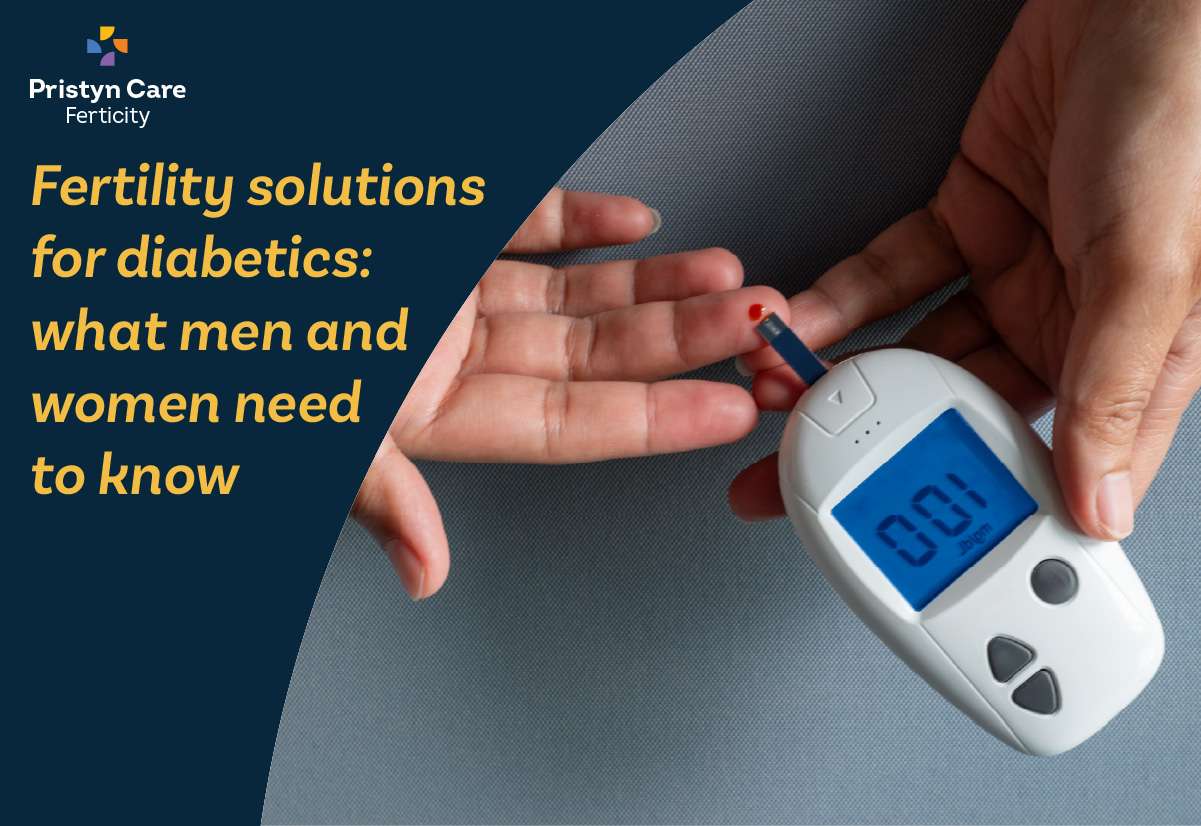Uncontrolled diabetes is potent enough to negatively affect fertility in both men and women, making it crucial to keep diabetes under control while trying to conceive. Uncontrolled diabetes can cause hormonal imbalances that affect ovulation in women and sperm production in men. Diabetes and fertility are deeply connected, and managing diabetes plays a significant role in improving reproductive health.
Diabetes disrupts hormones, which can interfere with successful implantation and make it harder to achieve pregnancy. It also deteriorates the quality of sperm, eggs, and embryos while also damaging DNA, which leads to genetic issues. Studies show that high blood glucose levels can also alter the reproductive organs’ ability to function optimally. Managing diabetes makes a difference in enabling you to have a healthy pregnancy.
Diabetes and female fertility issues
Diabetes is one of the major contributing variables to a woman’s fertility among the many other considerations. There are broadly two types of diabetes: Type 1 and Type 2. Blood sugar levels rise when a person has Type 1 diabetes (Insulin-Dependent Diabetes Mellitus/IDDM) because their body is unable to create enough insulin for sugar metabolism. People with Type 2 diabetes (Non-Insulin Dependent Diabetes Mellitus/NIDDM) need greater insulin levels for sugar metabolism because they produce normal amounts of the hormone but are resistant to its effects. Furthermore, a transient kind of diabetes that appears during pregnancy but usually goes away after delivery is known as gestational diabetes mellitus.
Women with diabetes can have irregular periods, delayed ovulation, and poor egg quality, all of which make conception more challenging. Diabetic pregnancy planning is crucial for women with diabetes, as managing blood sugar levels can improve the chances of a healthy pregnancy. Initially, it may increase the possibility of miscarriages or birth defects. As pregnancy progresses, it can manifest in issues like low birth weight or even more serious complications like stillbirth. Women with gestational diabetes are also more likely to become diabetic later in life and may face similar problems in future pregnancies. Also, there’s a higher risk of developing high blood pressure later on. Mindfully managing blood sugar levels is the safe way to ensure your and fetal health.
Diabetes and male fertility issues
It can be difficult for men with diabetes to conceive. Effects of diabetes also spill to male fertility by causing aberrant sperm, reducing sperm quality, and causing problems with ejaculation or erections. Men with diabetes often experience a decrease in testosterone levels, which can result in a reduced sex drive and erectile dysfunction.
On the bright side, managing diabetes with dietary and lifestyle changes reflects good results on well-being. Keeping blood sugar levels under control is essential, and this can be done with regular monitoring. Alongside that, making healthy lifestyle changes—like eating a balanced diet, quitting smoking, staying active, and managing stress can improve fertility. Moderate exercise helps to regulate blood sugar and improve both sperm count and quality. If you’re going through such a health problem, reaching out to a specialist can provide the right guidance and treatment options tailored to you.
How to Manage Infertility with Diabetes
If diabetes is making it difficult to conceive, in-vitro fertilization (IVF) could be the solution. Your infertility specialist will create a personalized treatment plan to suit your needs. Experts agree that with well-managed diabetes and a healthy weight, pregnancy is absolutely possible. Both you and your partner can benefit from a consultation at the best IVF centre in India for professional guidance and support. Fertility solutions for diabetics are available, and with the right approach, many couples have successfully conceived after seeking treatment.
If necessary, methods such as TESA or micro-TESE may be utilized to recover sperm in cases of male infertility. Depending on your diagnosis, treatments including intrauterine insemination (IUI), assisted laser hatching, or IVF may be suggested for female infertility.
For women with a restricted number of eggs and men with low sperm count, motility, or morphology, intracytoplasmic sperm injection (ICSI) can be especially beneficial.
Both partners must adhere to important lifestyle modifications for fertility therapy to be successful, including eating the correct meals, exercising frequently, keeping a healthy weight, and properly managing stress. Couples with diabetes who prioritize weight management and a nutritious diet have a higher probability of seeing positive outcomes in their fertility treatments. Proper diabetic pregnancy planning also ensures that blood sugar levels are well controlled during pregnancy, which can improve outcomes for both mother and baby.

